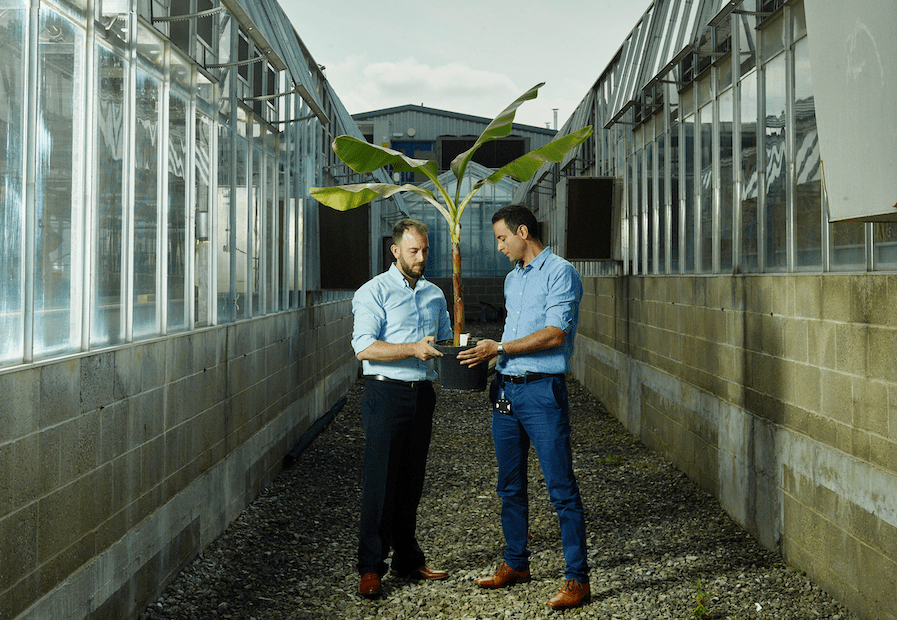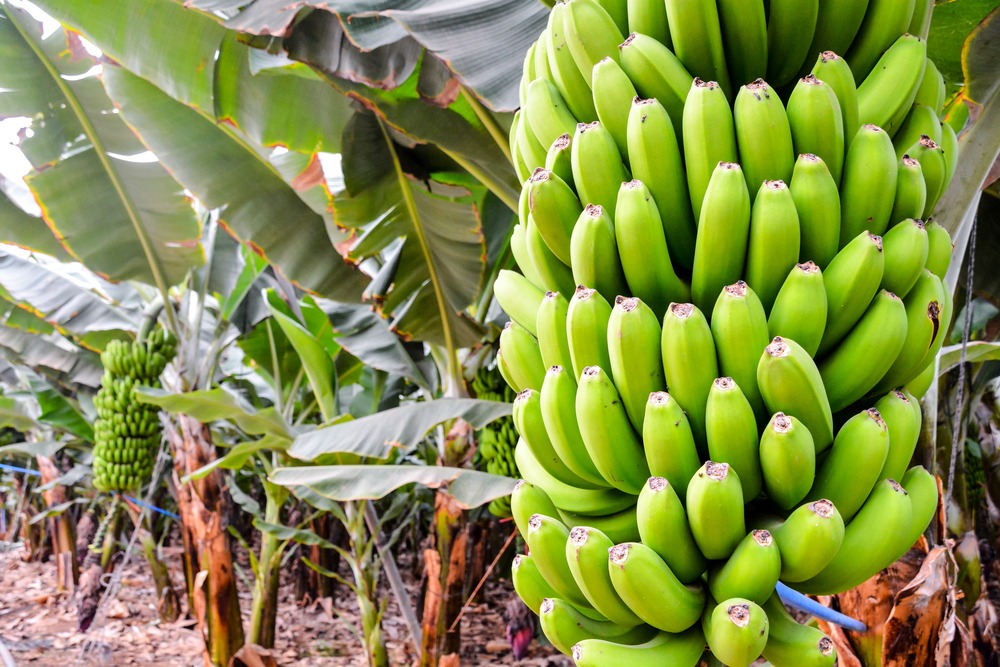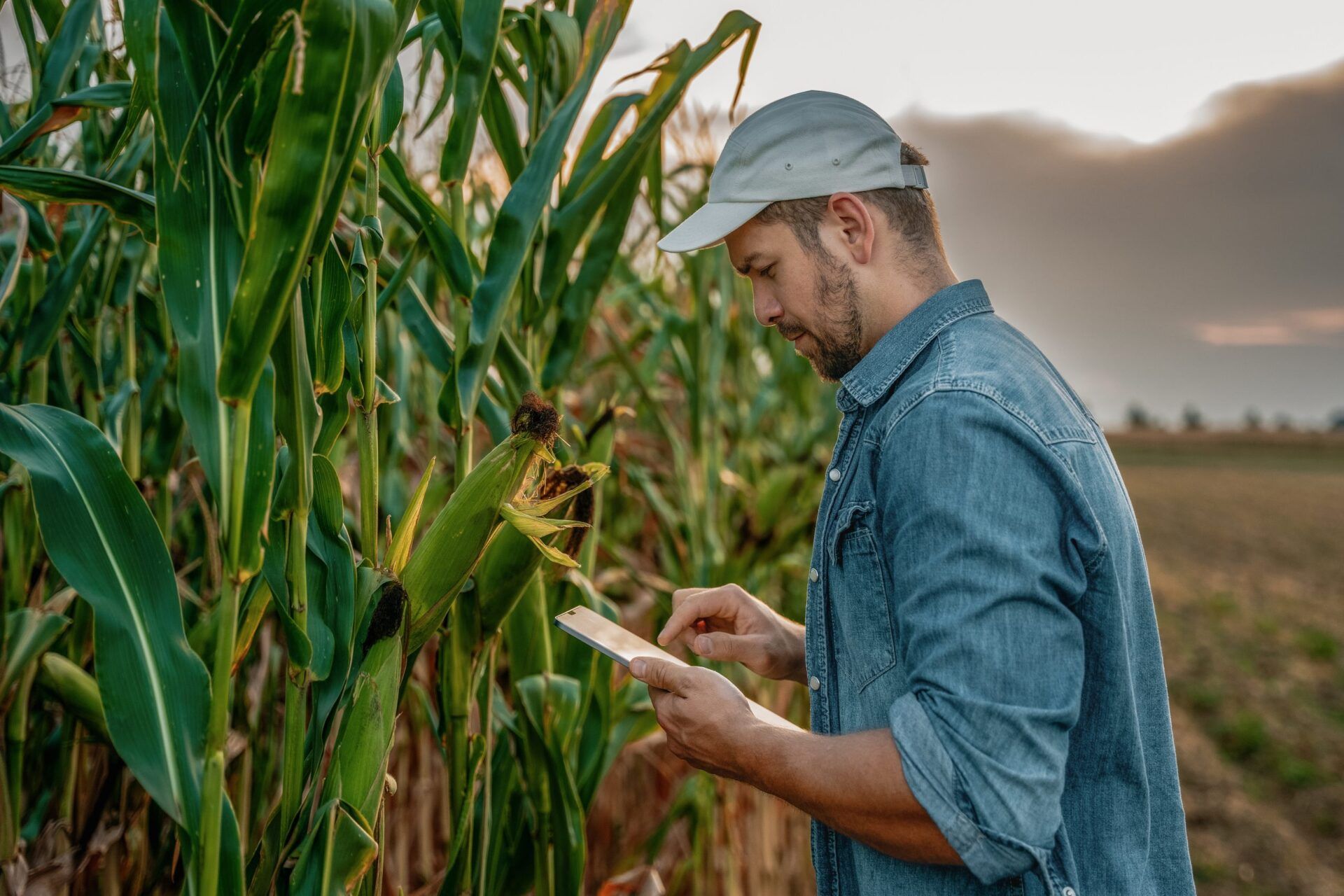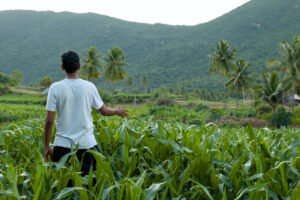- Ag biotech startup Tropic and Corteva Agriscience are partnering to develop stronger disease resistance traits in corn and soybeans.
- The two will use Tropic’s Gene editing-induced Gene Silencing (GEiGS) technology to build non-transgenic resistance traits that can combat a range of diseases and pathogens in the crops.
- The partnership is one of several Tropic has with companies looking to develop traits in both crops and animals.

Disease resistance from within: how GEiGS works
“There are challenges to traditional gene editing approaches to bring certain traits to these crops, and disease resistance is one of those challenging traits,” Tropic’s chief business officer Jack Peart tells AgFunderNews.
Animal and some plant viruses bind to receptors in order to invade the host cells. An easy way to think about this is to think of the receptor as a door through which the virus enters the cell to infect the plant.
In traditional gene editing, scientists have to first discover that door, then block entry through it by “erasing” or “changing” the door, says Eyal Maori, chief science officer at Tropic.
“You could resist infection by editing such cellular components that are required for the virus, hence overcoming susceptibility to disease ” he explains.
Unsurprisingly, this is a costly and time-consuming process, as “doors” are hard to discover and closing them might block entry of other components into the cell that are important for the plant’s fitness
GEiGS uses what’s already in the plant or animal to fight off what wants to invade it via RNA interference.
“It’s not about blocking the entry,” says Maori. “It’s about priming immunity. It’s a non-transgenic event [i.e., requires no foreign DNA] where you reprogram existing RNA interference genes, making them targeting specifically the pathogen.”
He adds that the big differentiator here is that there’s no need to spend time discovering the aforementioned door since the pathogen is already known, and that knowledge is used to develop resistance from within the plants.
RNAi technology is being used in agriculture already — and in human therapeutics such as with Alnylam’s siRNA drugs — but in those instances, it’s been in the form of an RNA applied externally, rather than via edits made internally to promote that immunity.

Different species, same principles
The team says that this process is very similar across different applications, be they for crops or animals, which is one of the reasons Tropic has been able to partner with various companies, including Corteva.
“It’s very highly conserved across different species,” says Peart. “How it is applied is subtly different.”
“What we’re able to do as a company is support the application of that technology. So we run the competent computational designs that allow for the edits to be made in various different organisms.”
At the name suggests, Tropic specializes in bananas, coffee and rice, and plans to expand to more tropical crops in the future. “We’re going to identify those bioinformatics solutions, and then we’re the ones who are going to create them in banana, coffee and rice,” explains Peart.
Partner companies like Corteva can take the underlying technology and use it for their own crops or animal systems via a license.
The flexibility is a driving differentiator for Tropic, which claims there isn’t another company out there currently doing this.
“We’re a team devoted to solving problems in bananas, but I now have a technology that can rescue pigs from diseases and other crops that are not bananas.”
For example, pig genetics company Genus uses Tropic’s tech to improve certain porcine and bovine traits. Tropic has also just spun out the company for human therapeutics based on GEiGS technology. It will use the same principles to develop immunotherapies for humans.
Tropic takes a financial cut from these licensing deals, though there is no co-branding involved.

Leveraging 100 years of brand recognition
The partnership with Corteva will focus on corn and soybean crops, two of the largest commodities in the US, where the work will take place.
“Corteva and the Pioneer name have 100 years of brand recognition,” says William (BJ) Haun, head of business development at Tropic.
Corteva’s genetics and germplasm combined with GEiGS allows Tropic to develop traits in crops it wouldn’t otherwise be able to access, he adds.
“A few companies have a vast majority of the premier genetics [in corn and soy]. They don’t part with that easily. The only way that we can usually access that is through a collaboration like this where we bring the technology to the table and they bring the genetics and some resources.”
For Tropic, the partnership is also a chance to widen its reach amongst potential new customers. “They have that established path to market and brand recognition and global footprint,” says Haun.
The companies hope that, by integrating GEiGS-mediated traits into Corteva’s premium corn and soybean genetics, crop yields can increase with a reduced environmental impact than is possible with more conventional disease control methods.




